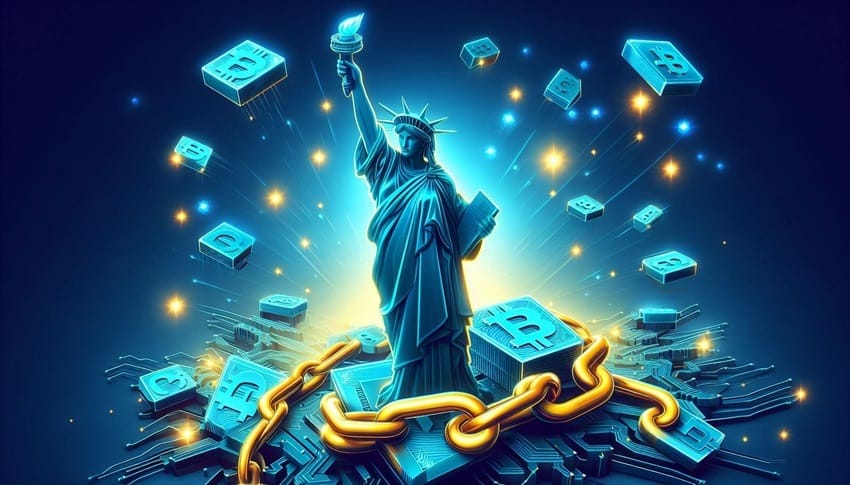Blockchain and the Fashion Industry: A Traceable Path to Ethical Clothing
Blockchain technology is changing the fashion industry by making supply chains more transparent and ethical. This technology helps track every step of making clothes, from raw materials to the final product. Because of this, customers can trust that the clothes they buy are made fairly and sustainably. Blockchain also helps brands prove their ethical practices, which is important as more people want to buy from companies that care about the environment and workers’ rights. This article will explore how blockchain is helping to create a more honest and sustainable fashion industry.
Key Takeaways
- Blockchain makes fashion supply chains transparent and traceable.
- It helps ensure fair labor practices and sustainable sourcing.
- Consumers can trust brands that use blockchain to prove their ethical practices.
- Blockchain technology supports the growth of circular fashion.
- There are challenges, but the future of blockchain in fashion looks promising.
The Role of Blockchain in Modern Fashion
Blockchain technology is transforming the fashion industry in many ways. By using blockchain, brands can provide consumers with detailed information about the origins of their products, ensuring that materials are sourced ethically. This technology is not just about financial transactions anymore; it has become a key part of modern supply chain management. Blockchain’s role in fashion is evolving rapidly, promising several benefits like connecting the apparel supply chain with a real-time flow of data.
Enhancing Ethical Practices Through Blockchain
Ensuring Fair Labor Practices
Blockchain technology can help ensure fair labor practices by providing a secure recording of transactions at every stage of the supply chain. This means brands can verify that workers are treated fairly and no exploitative practices are involved. For example, blockchain allows for the secure recording of transactions at every stage of your supply chain, from raw materials to finished products—helping to ensure fair labor practices.
Sustainable Sourcing and Blockchain
Blockchain can also help with sustainable sourcing. By tracking the origin of materials, brands can ensure they are sustainably and ethically sourced. This transparency helps consumers make informed choices and supports brands that prioritize sustainability.
Consumer Trust and Ethical Branding
Blockchain fosters consumer trust by providing verifiable information about the sourcing of materials and labor practices. This transparency helps build a strong relationship between brands and consumers, enhancing brand loyalty. When consumers can see every event in a product’s lifecycle, they are more likely to trust the brand and its commitment to ethical practices.
Traceability and Transparency in the Fashion Supply Chain
Tracking Raw Materials
In the fashion industry, traceability means knowing when, where, and how each piece of a garment is made. This allows us to trace it back from source to consumer, providing visibility of the entire process. Raw materials often come from various sources, making it crucial to track their journey. This ensures that the materials are ethically sourced and meet quality standards.
Monitoring Production Processes
Monitoring the production process is essential for maintaining transparency. By keeping a close eye on each step, from spinning and dyeing to final assembly, brands can ensure that ethical practices are followed. This not only helps in maintaining quality but also in building consumer trust.
Ensuring Product Authenticity
Ensuring the authenticity of products is another critical aspect. With blockchain technology, each product can have a unique identifier that verifies its origin and journey. This helps in combating counterfeit goods and assures consumers of the product’s authenticity.
Blockchain’s Contribution to Sustainable Fashion
Reducing Environmental Impact
Blockchain technology is helping the fashion industry reduce its environmental footprint. By creating unchangeable records of each step in the supply chain, blockchain ensures that every production stage meets sustainability standards. This technology helps minimize overstocking and resource waste, leading to a more eco-friendly industry.
Promoting Circular Fashion
Circular fashion aims to keep clothes in use for as long as possible. Blockchain supports this by tracking the lifecycle of garments, from production to resale. This transparency encourages brands to adopt more sustainable practices and helps consumers make informed choices.
Blockchain and Waste Management
Blockchain can also play a role in waste management. By securely certifying the sustainability of materials used in the fashion industry, blockchain helps brands manage waste more effectively. This leads to a reduction in the overall environmental impact of fashion production.
Blockchain technology is weaving a new pattern in the fabric of fashion supply chains, threading the needle between advanced innovation and sincere sustainability.
Challenges and Opportunities in Implementing Blockchain
Technical Hurdles
Implementing blockchain in the fashion industry comes with several technical challenges. Technological immaturity is a significant issue, as the technology is still in its early stages. This immaturity can lead to high costs and integration difficulties. Additionally, the decentralized nature of blockchain can make it vulnerable to security risks, especially if not properly managed.
Adoption Barriers
Adopting blockchain technology also faces several barriers. Traditional fashion companies may find it hard to shift from their established practices to new, blockchain-enabled processes. There is also a lack of standardization, which can result in the unnecessary disclosure of sensitive information. Moreover, the complexity of the fashion supply chain makes it challenging to implement a universal blockchain solution.
Future Prospects for Blockchain in Fashion
Despite these challenges, the future of blockchain in fashion holds promise. The technology can offer near real-time visibility into supply chain operations, allowing brands to take action earlier when issues arise. As more companies experiment with blockchain, the industry will likely see increased transparency and accountability, leading to more ethical practices.
Blockchain could become the tool used to hold companies accountable for every part of the process, assuming it’s made public.
In summary, while there are significant hurdles to overcome, the potential benefits of blockchain in the fashion industry make it a worthwhile endeavor.
Consumer Perspectives on Blockchain in Fashion
Building Consumer Trust
Blockchain technology is transforming how consumers view the fashion industry. By providing a transparent and immutable record of a product’s journey, blockchain boosts consumer trust. People are now more aware of where their purchases come from and the values of the brands they support. This transparency helps consumers make informed choices, aligning their purchases with their ethical values.
Blockchain creates a strong link of honesty between brands and buyers, showing where a product comes from and helping buyers choose items that meet their moral values.
Influence on Purchasing Decisions
Consumer awareness and demand for traceable textiles have increasingly become pivotal factors influencing purchasing decisions. Over 70% of consumers prefer brands that are clean and responsible. This shift in consumer behavior is pushing brands to adopt blockchain technology to meet these expectations. As a result, brands that embrace blockchain are likely to see a positive impact on their sales and customer loyalty.
Transparency and Brand Loyalty
Transparency is key to building brand loyalty. When consumers can trace the origins of their clothing and see the ethical practices behind their production, they are more likely to remain loyal to those brands. Blockchain provides this level of transparency, making it easier for consumers to trust and stay committed to brands that prioritize ethical practices. This not only enhances brand loyalty but also encourages more brands to adopt sustainable and ethical practices.
Case Studies of Blockchain Implementation in Fashion
Blockchain is changing the fashion world, making sustainable fashion a reality. By examining blockchain case studies, we see its power in making the industry more open and genuine. It shows blockchain is key to the future of fashion.
Conclusion
The fashion industry is undergoing a significant transformation with the adoption of blockchain technology. This shift is crucial for creating a more ethical and transparent supply chain. Blockchain allows us to track every step of a garment’s journey, from raw materials to the final product, ensuring that brands are held accountable for their practices. This technology not only helps in verifying the authenticity of products but also supports sustainable and ethical production methods. As consumers, especially younger generations, demand more transparency and sustainability, blockchain stands out as a powerful tool to meet these expectations. By embracing blockchain, the fashion industry can move towards a future where ethical practices and transparency are the norms, benefiting both the environment and society.
Frequently Asked Questions
What is blockchain technology in the fashion industry?
Blockchain in fashion is a system that keeps secure records of all steps in making and selling clothes. It helps prove where the clothes come from and that they’re made ethically.
How does blockchain improve supply chain transparency?
Blockchain makes every step in the supply chain visible to everyone. This means you can see where materials come from, how they are made, and who is involved in each step.
Can blockchain help ensure fair labor practices?
Yes, blockchain can show if workers are treated fairly and paid properly. It keeps track of labor conditions and pay, making it easier to spot and fix problems.
How does blockchain support sustainable fashion?
Blockchain helps track materials and processes to make sure they are eco-friendly. It can show if materials are recycled or if production methods are green.
What are the challenges of using blockchain in fashion?
Some challenges include the cost of setting up the technology, getting everyone in the supply chain to use it, and making sure the data is accurate and secure.
How does blockchain build consumer trust?
Blockchain provides proof that clothes are made ethically and sustainably. This transparency helps consumers trust that they are buying from responsible brands.
Stay informed with daily updates from Blockchain Magazine on Google News. Click here to follow us and mark as favorite: [Blockchain Magazine on Google News].
Get Blockchain Insights In Inbox
Stay ahead of the curve with expert analysis and market updates.
latest from tech
Disclaimer: Any post shared by a third-party agency are sponsored and Blockchain Magazine has no views on any such posts. The views and opinions expressed in this post are those of the clients and do not necessarily reflect the official policy or position of Blockchain Magazine. The information provided in this post is for informational purposes only and should not be considered as financial, investment, or professional advice. Blockchain Magazine does not endorse or promote any specific products, services, or companies mentioned in this posts. Readers are encouraged to conduct their own research and consult with a qualified professional before making any financial decisions.

 Bitcoin
Bitcoin  Ethereum
Ethereum  Tether
Tether  XRP
XRP  Solana
Solana  Dogecoin
Dogecoin  USDC
USDC  Lido Staked Ether
Lido Staked Ether  Cardano
Cardano  TRON
TRON  Avalanche
Avalanche  Chainlink
Chainlink  Toncoin
Toncoin  Wrapped stETH
Wrapped stETH  Shiba Inu
Shiba Inu  Sui
Sui  Wrapped Bitcoin
Wrapped Bitcoin  Hedera
Hedera  Stellar
Stellar  Polkadot
Polkadot  WETH
WETH  Hyperliquid
Hyperliquid  Bitcoin Cash
Bitcoin Cash  LEO Token
LEO Token  Uniswap
Uniswap  Litecoin
Litecoin  Pepe
Pepe  Wrapped eETH
Wrapped eETH  NEAR Protocol
NEAR Protocol  Ethena USDe
Ethena USDe  Aave
Aave  USDS
USDS  Internet Computer
Internet Computer  Aptos
Aptos  POL (ex-MATIC)
POL (ex-MATIC)  Cronos
Cronos  Mantle
Mantle  Ethereum Classic
Ethereum Classic  Render
Render  Bittensor
Bittensor  WhiteBIT Coin
WhiteBIT Coin  Monero
Monero  MANTRA
MANTRA  Artificial Superintelligence Alliance
Artificial Superintelligence Alliance  Dai
Dai  Arbitrum
Arbitrum  Filecoin
Filecoin 





